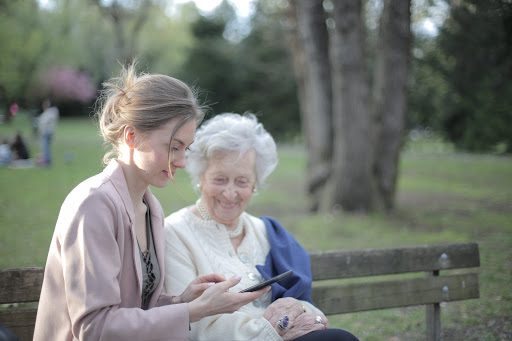You can’t always be there. But we can.
Online Safety For Seniors: Education and Traps To Avoid

How Do the Senses Change as Your Parents Get Older?
April 6, 2020
Elder Abuse: Signs, Types, and What to Do About It
November 23, 2021Online Safety For Seniors: Education and Traps To Avoid
While the cyber world harbors risks for users of all ages, there are some groups more vulnerable to its dangers than others. With more and more online scams specifically targeting the elder population, internet safety for seniors is essential in today’s hyper-connected world.
Earlier this year, the FBI reported a significant increase in online scams involving elder fraud. According to the report, 100,000+ seniors over 65 were scammed, with an average loss of $9,175, and over $100,000 for 2,000 older Americans. With thousands of online scammers hoping to prey on elderly users, teaching online safety for seniors can help prevent them from falling into one of these dangerous traps.

Factors that contribute to increased risk for seniors online are:
-
Lack of computer knowledge
While some seniors are tech-savvy, many are not. This compromises internet safety for seniors greatly. Ensuring their device has proper firewalls set up by a trusted individual or licensed company is an important safety measure to take. Seniors must remember that giving anyone access to their computer puts their private information at risk. Therefore, avoid giving anyone access that isn’t a trusted friend, relative, or licensed professional.
-
Unfamiliarity with the internet
Unlike most experienced users, seniors can sometimes struggle with identifying shady sites or phishing scams. This “digital literacy” comes with experience and most seniors are still beginners. Internet safety for seniors is more than knowing how to use a computer — it’s about learning how to safely navigate the web, understanding the reach that their shared content has, being able to identify trustworthy sites, and being wary of deceptive tactics employed by criminals online.
-
Overly trusting
It’s no secret that our senses change as we age. However, studies now suggest that as people age, they also become more trusting. According to researchers, this decreased ability to “be wary” can lead seniors to become victims of financial scams. Seniors are susceptible to being fooled by online content that appears “official” or “legitimate” when in reality, they are scam attempts. These fake sites can be difficult to identify for users of all ages and can compromise online safety for seniors if not cautious.

-
Internet Safety for Seniors
To protect seniors online, it is important to know what to look for. Here are some common online scams and deceptive tactics to avoid:
-
Government Impostor Scams
According to the Federal Trade Commission (FTC), government impostors will target unsuspecting victims while pretending to be a government agency like the Social Security Administration (SSA) or Internal Revenue Service (IRS). This can be done through a phone call, text message, and online via emails that appear highly official.
-
The Grandparent Scam
This scam consists of online criminals tugging at seniors’ heartstrings by posing as a troubled grandchild or representative of such seeking urgent, financial help. After wiring the funds, the so-called grandchild is never heard from again and the victim is scammed out of hundreds to thousands of dollars.
-
Health Insurance/Medicare Scams
The biggest factor of internet safety for seniors is demanding proof when being contacted by someone claiming to be an official. In this scam, online criminals will pose as Medicare or insurance representatives in an attempt to collect private information from the victim. They can also claim to provide fake services in an attempt to charge the victim for money compromising online safety for seniors.
-
Tech Support Scams
Fraudulent messages will appear on the victim’s computer or cellphone claiming that there is an error and the device needs repair. Scammers may either request remote access to the victim’s device and/or attempt to charge a fee for the so-called repair. For the internet safety of seniors, they must become digitally literate to be able to detect these phony messages.
-
Contest/Lottery Scams
Online scammers will trick victims into thinking they have won a contest or lottery. Victims are coerced into making a financial deposit to claim their prize. Older adults have lost thousands of dollars to similar scams and have no way of reclaiming the lost funds.
-
Online Dating Scams
According to the FTC, seniors lost over $84 million to romance scams in 2019 alone. With the rise of online dating, internet safety for lonely seniors is easily compromised. Cybercriminals use fake dating profiles to pose as potential love interests, eventually requesting funds for travel and other made-up reasons.
-
Charity Scams
Sometimes, the form of payment online criminals request can be a red flag to maintain online safety for seniors. Charity scammers will set up a fake fundraising page on a site that does not vet for fraud. Relying on the goodwill of seniors, online criminals will trick them into donating money — often in the form of a gift card or wire transfer.

The biggest takeaway to internet safety for seniors is to always demand validation, verification, and authentication before releasing private information. Understanding that their personal information is like a currency that needs to be valued and protected at all times is the most important factor in protecting seniors online.

